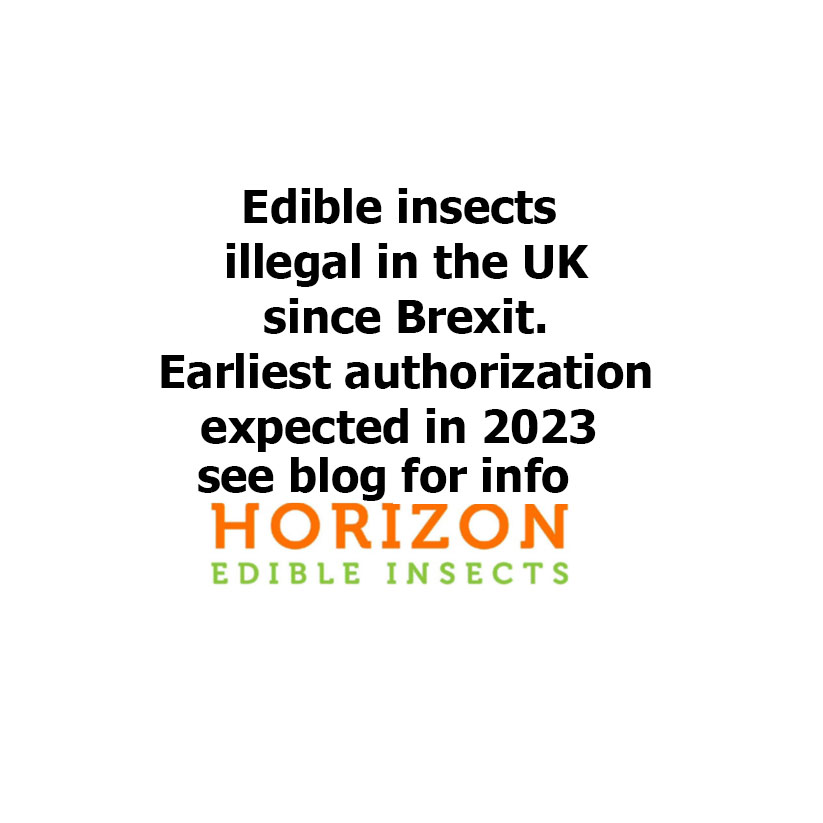We bring you edible insects news from the UK.
What the EU Commission asked for:
In 2015 the EU Commission put forward a proposal to speed up the authorization of novel foods, including edible insects:
“a centralised authorisation process (where applications are submitted to the European Commission instead of Member States’ authorities, and EFSA carries out the risk assessment), introducing a system of generic authorisation instead of applicant-based authorisations (where each company has to introduce its own application)“
https://www.europarl.europa.eu/RegData/etudes/ATAG/2015/569022/EPRS_ATA(2015)569022_EN.pdf
What the EU has ended up with:
What the EU has ended up with, is the exact opposite of what the EU Commission asked for. Each company has to apply, only those companies backed by capital investors can afford to, everybody applies to have the same product approved.
Why ? The matter was left in the hands of Experts and Consultants. If the Declarations of Interest are to be believed, they had no personal interests in twisting the EU Commission requirements. Did they have an interest in creating a complex system of authorization that would need their consultancy services for life ? With each company having to submit a scientific dossier, was the creation of the ‘novel food consultancy’ cash cow too tempting to resist? Was someone giving in to the interests of capital venture backed companies, which would be the only ones able to afford the long and expensive approval process? Why they managed to go against the EU Commission proposal, remains a mystery.
The EU Commission analysis was quite spot on:
“The approval of a novel food product can be long and costly, taking on average three years and costing on average €20 000 to €45 000, though it can range from just a few hundred euros up to a million, depending on the type and quality of scientific information required. This can be a deterrent to small companies and investors, especially if consumer acceptance of the new product is not guaranteed. In addition, in most cases the product has to be assessed twice, because the Member States tend to challenge each other’s assessments and raise safety objections to the initial assessment conducted by a first Member State’s competent authority. In such instances (about 80% of cases so far) an additional assessment by the European Food Safety Authority (EFSA) is required.”
What the UK has done:
After Brexit, the UK Government made a bad situation worse. Instead of grabbing the opportunity to disentangle the industry from the red tape, edible insects were made illegal overnight on the 31st December 2021. This was done without any prior notification or consultation with UK businesses. The decision was, that authorizations pending with the EFSA, would not be taken into account by the UK . Hence, new applications, supported by scientific dossiers, had to be submitted to the FSA, setting the clock back on the industry by 3 years.
Why ? Same Experts and Consultants ? Same corporate interests ? Pressure from the meat lobbies ? This is another matter that will remain a mystery unless some investigative journalist out there looks into this scandalous situation created by the Government.
Other countries outside of the EU have shown us that insects are safe and that the complex ‘Novel Food’ legislation is not suited to insects. Take for example Australia and New Zealand, where the competent authority, Food Standards Australia New Zealand [FSANZ], equivalent to the FSA, has carrier out its own assessments and identified no safety risk. As a result FSANZ concluded that existing General Food Safety regulations are suitable to ensure product safety.
Could the FSA have done the same ? Is this how the UK has ‘taken back control’ ?
Please contact us to find out more edible insects news , or how you can support.
